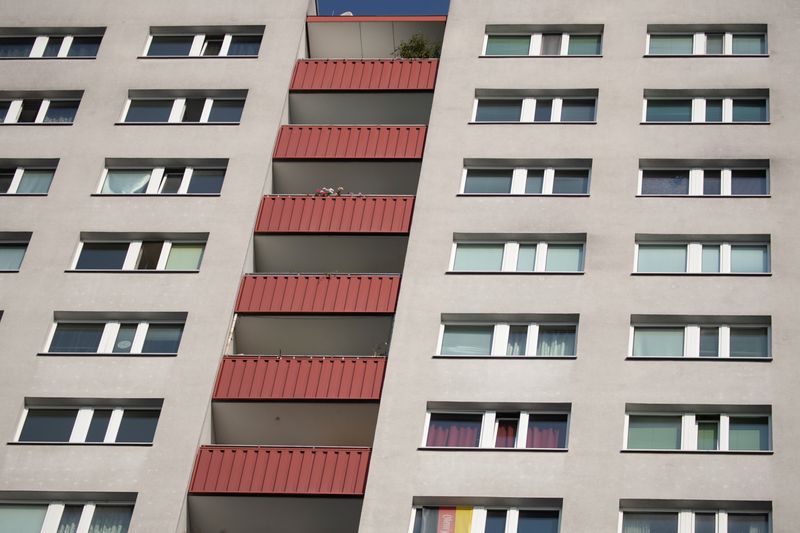By Indradip Ghosh
BENGALURU (Reuters) - Home prices in Germany will fall more sharply this year and next than previously thought as higher interest rates dampen demand, according to analysts in a Reuters poll who said rental affordability in urban areas would worsen over the coming years.
Twin pressures from a high inflation-induced cost of living crisis alongside fast-rising interest rates have forced many Germans to forgo dreams of owning a home and instead continue in rented accommodation.
With the European Central Bank expected to hike interest rates at least twice more in coming months and inflation still running around 9%, that trend is unlikely to reverse soon.
Average home prices in Germany, Europe's biggest economy, are forecast to decline 5.8% this year and 2.5% next year, according to the Feb. 16-27 poll of 12 property experts. That is more severe than falls of 3.5% and 0.5% predicted three months ago.
If realised, it would be the first annual decline at least since official data started in 2016.
Asked how much average house prices would fall from peak to trough, the median response was 11.5%, more than the 10% predicted in November, with the steepest forecast at 20%.
"As the current rate hike cycle is the most aggressive one since the start of the monetary union, it will take a while before the housing market correction will bottom out. Also, the rebound after the bottoming out could be weaker than many currently think," said Carsten Brzeski, global head of macro at ING.
"While we expect house prices to fall, this will not be enough to improve affordability, given the increase in financing costs and the loss of real wages."
Nearly three-quarters of respondents, 8 of 11, said home ownership would decrease over the next two to three years.
New residential construction is expected to decline over the coming year, according to a report by the German Property Federation (ZIA), which noted the housing shortage was at its worst in 20 years.
That will add to pressure on rental markets. Rental prices were expected to increase 3.5% this year and next and 4.0% in 2025, the latest Reuters survey showed.
A strong majority, 10 of 12, said affordability in the urban home rental market would worsen over the next two years.
"Higher interest rates forced a significant part of potential buyers out of the housing market...These potential buyers - with above average income - are now increasingly seeking rented apartments," said Sebastian Schnejdar, senior real estate analyst at BayernLB.

"In conjunction with increasing housing shortages, rents will rise significantly. Therefore affordability, especially in the urban home rental markets, will significantly decline."
(For other stories from the Reuters quarterly housing market polls:)